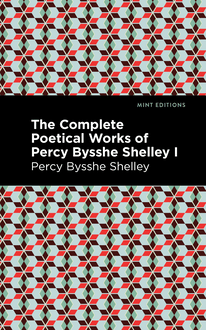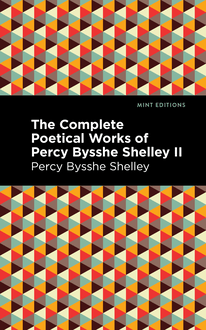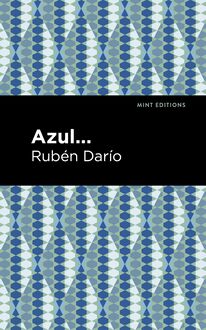-
 Univers
Univers
-
 Ebooks
Ebooks
-
 Livres audio
Livres audio
-
 Presse
Presse
-
 Podcasts
Podcasts
-
 BD
BD
-
 Documents
Documents
-
- Cours
- Révisions
- Ressources pédagogiques
- Sciences de l’éducation
- Manuels scolaires
- Langues
- Travaux de classe
- Annales de BEP
- Etudes supérieures
- Maternelle et primaire
- Fiches de lecture
- Orientation scolaire
- Méthodologie
- Corrigés de devoir
- Annales d’examens et concours
- Annales du bac
- Annales du brevet
- Rapports de stage
La lecture à portée de main
Vous pourrez modifier la taille du texte de cet ouvrage
Découvre YouScribe en t'inscrivant gratuitement
Je m'inscrisThe Complete Poetical Works of Percy Bysshe Shelley Volume I , livre ebook
Découvre YouScribe en t'inscrivant gratuitement
Je m'inscrisEn savoir plus
Vous pourrez modifier la taille du texte de cet ouvrage
En savoir plus

Description
The Complete Poetical Works of Percy Bysshe Shelley Volume I (1914) compiles some of Percy Bysshe Shelley’s best-known works as a leading poet, playwright, and political thinker of the nineteenth century. As a leading figure among the English Romantics, Shelley was a master of poetic form and tradition who recognized the need for radical change in the social order. His work has influenced such writers and intellectuals as Karl Marx, Mahatma Gandhi, W. B. Yeats, and George Bernard Shaw. In Prometheus Unbound, a lyrical drama, Shelley explores the story of Prometheus, a figure from Greek mythology who stole the power of fire in defiance of the gods. Giving fire to the human race, he sacrifices himself to an eternity of torture. For Shelley, Prometheus represented the power of revolutionary action, important to the poet as a follower of radical anarchist William Godwin. The Masque of Anarchy is a political poem written in response to the Peterloo Massacre of 1819, when a British cavalry unit attacked a group of protestors in Manchester, injuring hundreds and killing eighteen. Adonais is an elegy commemorating the life of Romantic poet John Keats, whose death from tuberculosis at the age of 25 inspired Shelley to compose one of his finest literary works. A pastoral elegy in the tradition of John Milton’s Lycidas, the poem declares “‘With me / Died Adonais; till the Future dares / Forget the Past, his fate and fame shall be / An echo and a light unto eternity!’” Immortalizing Keats, Shelley chillingly foreshadows his own tragic death, which ended his promising career only a year later. With a beautifully designed cover and professionally typeset manuscript, this edition of Percy Bysshe Shelley’s The Complete Poetical Works of Percy Bysshe Shelley Volume I is a classic of English literature reimagined for modern readers.
Sujets
Informations
| Publié par | Mint Editions |
| Date de parution | 06 juillet 2021 |
| Nombre de lectures | 0 |
| EAN13 | 9781513278155 |
| Langue | English |
| Poids de l'ouvrage | 1 Mo |
Informations légales : prix de location à la page 0,0850€. Cette information est donnée uniquement à titre indicatif conformément à la législation en vigueur.
Extrait
The Complete Poetical Works of Percy Bysshe Shelley Volume I
Percy Bysshe Shelley
The Complete Poetical Works of Percy Bysshe Shelley Volume I was first published in 1800.
This edition published by Mint Editions 2021.
ISBN 9781513277745 | E-ISBN 9781513278155
Published by Mint Editions®
minteditionbooks.com
Publishing Director: Jennifer Newens
Design & Production: Rachel Lopez Metzger
Project Manager: Micaela Clark
Typesetting: Westchester Publishing Services
C ONTENTS T WO L ETTERS FROM M RS . M ARY S HELLEY T HE D AEMON OF THE W ORLD P ART 1 P ART 2 A LASTOR : O R , THE S PIRIT OF S OLITUDE P REFACE A LASTOR : O R , THE S PIRIT OF S OLITUDE N OTE ON A LASTOR , BY M RS . S HELLEY T HE R EVOLT OF I SLAM A P OEM IN T WELVE C ANTOS A UTHOR ’ S P REFACE D EDICATION T O M ARY — — C ANTO 1 C ANTO 2 C ANTO 3 C ANTO 4 C ANTO 5 C ANTO 6 C ANTO 7 C ANTO 8 C ANTO 9 C ANTO 10 C ANTO 11 C ANTO 12 N OTE ON THE “R EVOLT OF I SLAM ”, BY M RS . S HELLEY P RINCE A THANASE P ART 1 P ART 2 R OSALIND AND H ELEN A DVERTISEMENT R OSALIND , H ELEN , AND HER C HILD N OTE BY M RS . S HELLEY J ULIAN AND M ADDALO P REFACE N OTE BY M RS . S HELLEY P ROMETHEUS U NBOUND P REFACE D RAMATIS P ERSONAE A CT 1 A CT 2 A CT 3 A CT 4 N OTE ON “P ROMETHEUS U NBOUND ”, BY M RS . S HELLEY T HE C ENCI D EDICATION , TO L EIGH H UNT , E SQ . T HE C ENCI : P REFACE T HE C ENCI : A T RAGEDY IN F IVE A CTS A CT 1 A CT 2 A CT 3 A CT 4 A CT 5 N OTE ON T HE C ENCI , BY M RS . S HELLEY T HE M ASK OF A NARCHY N OTE ON THE M ASK OF A NARCHY , BY M RS . S HELLEY P ETER B ELL THE T HIRD D EDICATION P ROLOGUE P ART 1 P ART 2 P ART 3 P ART 4 P ART 5 P ART 6 P ART 7 N OTE ON P ETER B ELL THE T HIRD , BY M RS . S HELLEY L ETTER TO M ARIA G ISBORNE L EGHORN , J ULY 1, 1820 T HE W ITCH OF A TLAS T O M ARY T HE W ITCH OF A TLAS N OTE ON THE W ITCH OF A TLAS , BY M RS . S HELLEY O EDIPUS T YRANNUS OR S WELLFOOT THE T YRANT A DVERTISEMENT D RAMATIS P ERSONAE A CT 1 A CT 2 N OTE ON O EDIPUS T YRANNUS , BY M RS . S HELLEY E PIPSYCHIDION A DVERTISEMENT E PIPSYCHIDION F RAGMENTS C ONNECTED WITH E PIPSYCHIDION A DONAIS P REFACE A DONAIS C ANCELLED P ASSAGES OF A DONAIS H ELLAS T O HIS E XCELLENCY P REFACE P ROLOGUE TO H ELLAS H ELLAS N OTES N OTE ON H ELLAS , BY M RS . S HELLEY F RAGMENTS OF AN U NFINISHED D RAMA C HARLES THE F IRST T HE T RIUMPH OF L IFE
T WO L ETTERS FROM M RS . M ARY S HELLEY
In nobil sangue vita umile e queta,
Ed in alto intelletto un puro core
Frutto senile in sul giovenil fibre,
E in aspetto pensoso anima lieta.
—P ETRARCA
It had been my wish, on presenting the public with the Posthumous Poems of Mr. Shelley, to have accompanied them by a biographical notice; as it appeared to me that at this moment a narration of the events of my husband’s life would come more gracefully from other hands than mine, I applied to Mr. Leigh Hunt. The distinguished friendship that Mr. Shelley felt for him, and the enthusiastic affection with which Mr. Leigh Hunt clings to his friend’s memory, seemed to point him out as the person best calculated for such an undertaking. His absence from this country, which prevented our mutual explanation, has unfortunately rendered my scheme abortive. I do not doubt but that on some other occasion he will pay this tribute to his lost friend, and sincerely regret that the volume which I edit has not been honoured by its insertion.
The comparative solitude in which Mr. Shelley lived was the occasion that he was personally known to few; and his fearless enthusiasm in the cause which he considered the most sacred upon earth, the improvement of the moral and physical state of mankind, was the chief reason why he, like other illustrious reformers, was pursued by hatred and calumny. No man was ever more devoted than he to the endeavour of making those around him happy; no man ever possessed friends more unfeignedly attached to him. The ungrateful world did not feel his loss, and the gap it made seemed to close as quickly over his memory as the murderous sea above his living frame. Hereafter men will lament that his transcendent powers of intellect were extinguished before they had bestowed on them their choicest treasures. To his friends his loss is irremediable: the wise, the brave, the gentle, is gone for ever! He is to them as a bright vision, whose radiant track, left behind in the memory, is worth all the realities that society can afford. Before the critics contradict me, let them appeal to any one who had ever known him. To see him was to love him: and his presence, like Ithuriel’s spear, was alone sufficient to disclose the falsehood of the tale which his enemies whispered in the ear of the ignorant world.
His life was spent in the contemplation of Nature, in arduous study, or in acts of kindness and affection. He was an elegant scholar and a profound metaphysician; without possessing much scientific knowledge, he was unrivalled in the justness and extent of his observations on natural objects; he knew every plant by its name, and was familiar with the history and habits of every production of the earth; he could interpret without a fault each appearance in the sky; and the varied phenomena of heaven and earth filled him with deep emotion. He made his study and reading-room of the shadowed copse, the stream, the lake, and the waterfall. Ill health and continual pain preyed upon his powers; and the solitude in which we lived, particularly on our first arrival in Italy, although congenial to his feelings, must frequently have weighed upon his spirits; those beautiful and affecting “Lines written in Dejection near Naples” were composed at such an interval; but, when in health, his spirits were buoyant and youthful to an extraordinary degree.
Such was his love for Nature that every page of his poetry is associated, in the minds of his friends, with the loveliest scenes of the countries which he inhabited. In early life he visited the most beautiful parts of this country and Ireland. Afterwards the Alps of Switzerland became his inspirers. “Prometheus Unbound” was written among the deserted and flower-grown ruins of Rome; and, when he made his home under the Pisan hills, their roofless recesses harboured him as he composed the “Witch of Atlas”, “Adonais”, and “Hellas”. In the wild but beautiful Bay of Spezzia, the winds and waves which he loved became his playmates. His days were chiefly spent on the water; the management of his boat, its alterations and improvements, were his principal occupation. At night, when the unclouded moon shone on the calm sea, he often went alone in his little shallop to the rocky caves that bordered it, and, sitting beneath their shelter, wrote the “Triumph of Life”, the last of his productions. The beauty but strangeness of this lonely place, the refined pleasure which he felt in the companionship of a few selected friends, our entire sequestration from the rest of the world, all contributed to render this period of his life one of continued enjoyment. I am convinced that the two months we passed there were the happiest which he had ever known: his health even rapidly improved, and he was never better than when I last saw him, full of spirits and joy, embark for Leghorn, that he might there welcome Leigh Hunt to Italy. I was to have accompanied him; but illness confined me to my room, and thus put the seal on my misfortune. His vessel bore out of sight with a favourable wind, and I remained awaiting his return by the breakers of that sea which was about to engulf him.
He spent a week at Pisa, employed in kind offices toward his friend, and enjoying with keen delight the renewal of their intercourse. He then embarked with Mr. Williams, the chosen and beloved sharer of his pleasures and of his fate, to return to us. We waited for them in vain; the sea by its restless moaning seemed to desire to inform us of what we would not learn:—but a veil may well be drawn over such misery. The real anguish of those moments transcended all the fictions that the most glowing imagination ever portrayed; our seclusion, the savage nature of the inhabitants of the surrounding villages, and our immediate vicinity to the troubled sea, combined to imbue with strange horror our days of uncertainty. The truth was at last known,—a truth that made our loved and lovely Italy appear a tomb, its sky a pall. Every heart echoed the deep lament, and my only consolation was in the praise and earnest love that each voice bestowed and each countenance demonstrated for him we had lost,—not, I fondly hope, for ever; his unearthly and elevated nature is a pledge of the continuation of his being, although in an altered form. Rome received his ashes; they are deposited beneath its weed-grown wall, and ‘the world’s sole monument’ is enriched by his remains.
I must add a few words concerning the contents of this volume. “Julian and Maddalo”, the “Witch of Atlas”, and most of the “Translations”, were written some years ago; and, with the exception of the “Cyclops”, and the Scenes from the “Magico Prodigioso”, may be considered as having received the author’s ultimate corrections. The “Triumph of Life” was his last work, and was left in so unfinished a state that I arranged it in its present form with great difficulty. All his poems which were scattered in periodical works are collected in this volume, and I have added a reprint of “Alastor, or the Spirit of Solitude”: the difficulty with which a copy can be obtained is the cause of its republication. Many of the Miscellaneous Poems, written on the spur of the occasion, and never retouched, I found among his manuscript books, and have carefully copied. I have subjoined, whenever I have been able, the date of their composition.
I do not know whether the critics will reprehend the insertion of some of the most imperfect among them; but I frankly own that I have been more actuated by the fear lest any monument of his genius should escape me than the wish of present
-
 Univers
Univers
-
 Ebooks
Ebooks
-
 Livres audio
Livres audio
-
 Presse
Presse
-
 Podcasts
Podcasts
-
 BD
BD
-
 Documents
Documents
-
Jeunesse
-
Littérature
-
Ressources professionnelles
-
Santé et bien-être
-
Savoirs
-
Education
-
Loisirs et hobbies
-
Art, musique et cinéma
-
Actualité et débat de société
-
Jeunesse
-
Littérature
-
Ressources professionnelles
-
Santé et bien-être
-
Savoirs
-
Education
-
Loisirs et hobbies
-
Art, musique et cinéma
-
Actualité et débat de société
-
Actualités
-
Lifestyle
-
Presse jeunesse
-
Presse professionnelle
-
Pratique
-
Presse sportive
-
Presse internationale
-
Culture & Médias
-
Action et Aventures
-
Science-fiction et Fantasy
-
Société
-
Jeunesse
-
Littérature
-
Ressources professionnelles
-
Santé et bien-être
-
Savoirs
-
Education
-
Loisirs et hobbies
-
Art, musique et cinéma
-
Actualité et débat de société
- Cours
- Révisions
- Ressources pédagogiques
- Sciences de l’éducation
- Manuels scolaires
- Langues
- Travaux de classe
- Annales de BEP
- Etudes supérieures
- Maternelle et primaire
- Fiches de lecture
- Orientation scolaire
- Méthodologie
- Corrigés de devoir
- Annales d’examens et concours
- Annales du bac
- Annales du brevet
- Rapports de stage




















